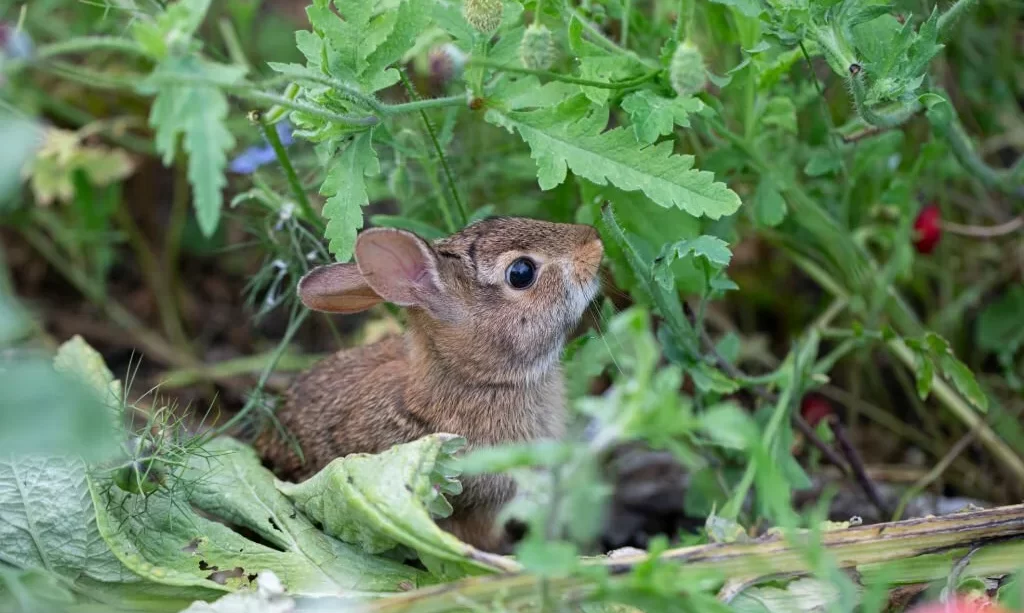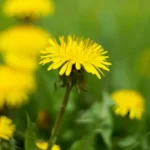Rabbits are popular pets and livestock animals known for their gentle nature and dietary preferences that heavily lean towards leafy greens. As responsible rabbit caretakers, it’s important to provide a balanced and nutritious diet for these furry companions. In this context, the question often arises: Can rabbits eat Swiss chard? This article aims to delve into the world of rabbit nutrition and explore the suitability of Swiss chard as a part of a rabbit’s diet. We will discuss the nutritional value of Swiss chard, how to safely feed it to your rabbits, and the potential benefits and risks associated with including this leafy green in their meals.
- Easy to Grow – Seeds are packed in a beautiful paper packet with instructions for successful growing and germination in your own home garden. Each packet also has instructions for saving seeds after harvest. Getting started is simple for both beginner and experienced gardeners.
- Quality Seeds – Plant now or store for future growing seasons. These seeds will remain viable for years if stored in a cool dry location. Our safe, non-hybrid non-GMO heirloom seeds are always open-pollinated, naturally grown, untreated, and selected to ensure the best germination rates.
Swiss Chard
Swiss chard, scientifically known as Beta vulgaris subsp. cicla, is a leafy green vegetable that belongs to the same family as beets and spinach. It is characterized by its vibrant, dark green leaves and colorful stalks, which can be found in various shades, including red, yellow, and white. Swiss chard is known for its rich nutrient profile, making it a valuable addition to human diets.
This leafy green is packed with essential vitamins and minerals, including vitamin K, vitamin A, and vitamin C. Swiss chard is also a good source of minerals like potassium and magnesium, which are important for various physiological processes. Additionally, Swiss chard contains dietary fiber, which can aid in digestion.
Feeding Swiss Chard to Rabbits
Introducing Swiss chard to your rabbit’s diet can be a healthy and refreshing experience. However, there are some steps to consider before offering this leafy green to your furry friends. To begin, ensure that the Swiss chard is fresh and free from any pesticides or chemicals. Thoroughly wash the leaves and stalks to remove any potential contaminants.
When serving Swiss chard to your rabbits, it’s advisable to cut it into manageable pieces, making it easier for them to nibble on. Always start with small portions to gauge their response. Rabbits can be sensitive to dietary changes, so introducing Swiss chard gradually is a smart approach.
Swiss chard can be served both raw and cooked, but many rabbit owners opt to offer it raw, as cooking may reduce some of its nutritional value. Over time, you can increase the amount of Swiss chard in their diet as they become accustomed to this nutritious addition.
In the following sections, we’ll explore the potential benefits of including Swiss chard in your rabbit’s diet, as well as the risks and precautions associated with feeding this leafy green.
Benefits of Feeding Swiss Chard to Rabbits
Feeding Swiss chard to your rabbits offers a range of benefits. Firstly, Swiss chard is packed with essential vitamins and minerals that can enhance your rabbit’s nutrition. Vitamins like K, A, and C support various aspects of their health, including immune function and vision. These nutrients can contribute to your rabbit’s overall well-being.
Swiss chard is also a valuable addition to your rabbit’s diet because it offers variety. A diverse diet can keep your rabbit engaged and satisfied, preventing boredom and encouraging healthy eating habits. The act of nibbling on fresh greens like Swiss chard can promote dental health by naturally wearing down their continuously growing teeth.
Furthermore, the dietary fiber in Swiss chard aids in digestion and supports a healthy gut. This leafy green can contribute to regular bowel movements, reducing the risk of digestive issues.
Risks and Precautions
While Swiss chard can be a nutritious addition to your rabbit’s diet, there are some risks and precautions to consider. Swiss chard, like many leafy greens, contains oxalates. These compounds can bind to calcium in the rabbit’s gut and potentially lead to the formation of bladder or kidney stones. To mitigate this risk, ensure that your rabbit has access to a calcium source such as hay and that Swiss chard is part of a balanced diet.
Another consideration is the amount of Swiss chard you feed your rabbit. As with any treat, overconsumption can lead to digestive upset. Start slowly and increase the quantity gradually as your rabbit becomes accustomed to this new food. Watch for any signs of digestive distress, such as diarrhea, and adjust their diet accordingly.
Alternative Greens for Rabbits
While Swiss chard can be a delightful addition to your rabbit’s diet, there are numerous other leafy greens to consider. Some popular options include romaine lettuce, spinach, kale, and dandelion greens. Each of these greens offers unique nutritional benefits, and including a variety of them can provide your rabbit with a well-rounded diet.
It’s essential to maintain a diverse and balanced diet for your rabbit, ensuring that they receive all the nutrients they need. Different greens can also add a layer of enrichment to your rabbit’s diet, as they get to explore various tastes and textures.
- Balanced protein, amino acids, vitamins and minerals rabbits need to thrive
- Added prebiotics and probiotics keep rabbits on feed and support digestive health
- Yucca Schidigera Extract helps reduce odors and enhances feed palatability
- Natural, wholesome vegetarian diet; no artificial preservatives or colors
- Vitamin A supports breeding does and eye health, and promotes sleek and shiny fur
Conclusion
In conclusion, the question “Can rabbits eat Swiss chard?” can be answered with a resounding yes, provided that it is introduced carefully and in moderation. Swiss chard is a nutritious and flavorful addition to your rabbit’s menu, offering essential vitamins and minerals, variety, and potential dental health benefits.
However, it’s crucial to be mindful of the risks, particularly regarding oxalates and overconsumption. Maintaining a balanced and diverse diet for your rabbit, including a selection of leafy greens, can ensure their nutritional needs are met while keeping them content and healthy.
By making informed and responsible choices in your rabbit’s diet, you can help support their well-being and ensure that mealtime remains a pleasurable and nourishing experience for your beloved furry companion.





